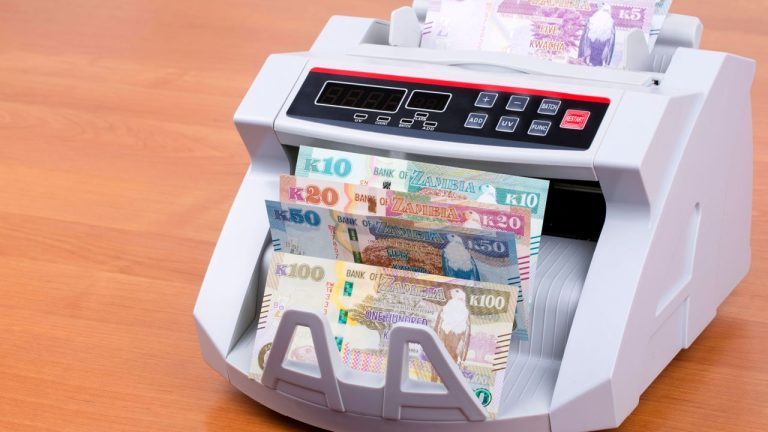Report: Zambian Currency Poised for First Quarterly Decline Since 2020
Publikováno: 4.4.2023
 The Zambian kwacha, one of the best-performing currencies in 2022, is now expected to see its first quarterly decline in nearly two years. The Zambian leader Hakainde Hichilema claimed that stalled debt restructuring negotiations are adding to pressure against the local currency. Zambia’s Debt Default After ending 2022 as one of Africa’s best-performing currencies, the […]
The Zambian kwacha, one of the best-performing currencies in 2022, is now expected to see its first quarterly decline in nearly two years. The Zambian leader Hakainde Hichilema claimed that stalled debt restructuring negotiations are adding to pressure against the local currency. Zambia’s Debt Default After ending 2022 as one of Africa’s best-performing currencies, the […]

The Zambian kwacha, one of the best-performing currencies in 2022, is now expected to see its first quarterly decline in nearly two years. The Zambian leader Hakainde Hichilema claimed that stalled debt restructuring negotiations are adding to pressure against the local currency.
Zambia’s Debt Default
After ending 2022 as one of Africa’s best-performing currencies, the Zambian kwacha depreciated from 18 units of the local currency for every dollar on Jan. 1, to slightly more than 21 units per dollar by March 31. In addition, a report by Bloomberg has said the kwacha is set to realize its first quarterly decline since Q1 of 2020.
At that time, the kwacha’s drop versus major currencies was attributed to fears Zambia would become the first sovereign defaulter on the African continent. A few months later, Zambia, which was then led by Edgar Lungu, would become the first country from the continent to default. However, following Lungu’s departure in August 2021, the Zambian kwacha’s value surged from around 19.34 units per dollar (ZMW19.34:$US1) to 15.3:1 on Sept. 2, 2022.
As previously reported by Bitcoin.com News, the currency’s rebound was spurred by reports that the International Monetary Fund (IMF) had approved a bailout package for Zambia. However, since the beginning of the year, the kwacha has lost ground against the U.S. dollar and other major currencies.
In an op-ed published in the Washington Post, President Hakainde Hichilema seemingly blamed the “cumbersome and bureaucratic” debt restructuring process for causing delays in finalizing his country’s planned reforms. According to the Zambian leader, such delays “are putting pressure on the local currency.”
Meanwhile, the Bloomberg report suggested that a weakened kwacha and a resurgent inflation rate are likely to prompt another rate hike by the Zambian central bank.
Register your email here to get a weekly update on African news sent to your inbox:
What are your thoughts on this story? Let us know what you think in the comments section below.